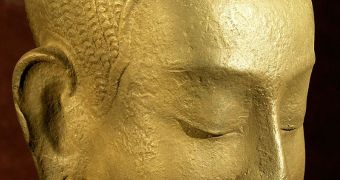In a study conducted on veterans of the Iraq and Afghanistan conflicts, investigators determined that practicing transcendental meditation helped the five test participants cope with the symptoms of post-traumatic stress disorder (PTSD).
The condition is triggered when people are exposed to traumatic events under difficult circumstances, such as for instance taking part in a war. The disorder can have significant consequences for a sufferer's mental and physical well-being.
Given that PTSD has a high incidence in soldiers, the military is very interested in finding a way of mitigating its effects. This would allow valuable veterans who have been diagnosed with the condition to be returned to active duty in other conflicts too.
The symptoms most commonly associated with the disorder can be addressed using transcendental meditation, a type of meditation that does not require years of training or past experienced in this field.
In the new research, it was found that all of the 5 participants exhibited marked improvements in their condition, by as much as 50 percent. The test subjects were all aged between 25 and 40 years old.
They practiced TM for only 8 weeks after spending between 10 and 24 months in either Iraq, Afghanistan, or both. During their deployment, they experienced either moderate or heavy-moderate combat, PsychCentral reports.
Stress and depression, the two main symptoms associated with PTSD, were found to be significantly reduced in the study group. Due to the fact that this research was carried out on limited numbers of participants, its conclusions cannot be taken at face value.
However, the study does provide an interesting starting point for investigators designing other studies meant to assess the potential impacts of transcendental meditation on people's mental well-being.
Veterans in the new study accepted TM well, and found it easy to learn. The results were assessed using the Clinician Administered PTSD Scale (CAPS), which the US Department of Veterans Affairs accepts as the main tool for diagnosing this disorder.
“Even though the number of veterans in this study was small, the results were very impressive,” explains Georgetown University Medical School clinical professor of psychiatry Norman Rosenthal, MD.
“These young men were in extreme distress as a direct result of trauma suffered during combat, and the simple and effortless transcendental meditation technique literally transformed their lives,” he adds.
“Transcendental meditation quiets down the nervous system, and slows down the ‘fight-or-flight’ response. The condition is common, affecting an estimated one in seven deployed soldiers and Marines, most of whom do not get adequate treatment,” the expert adds.
Details of the new work were published in the June issue of the medical journal Military Medicine.
“So far, only one treatment – simulation exposure to battleground scenes – has been deemed effective, but it requires specialized software and hardware, trained personnel and is labor-intensive,” Rosenthal explains.
“Based on our study and previous findings, I believe transcendental meditation certainly warrants further study for combat-related PTSD,” he concludes.

 14 DAY TRIAL //
14 DAY TRIAL //